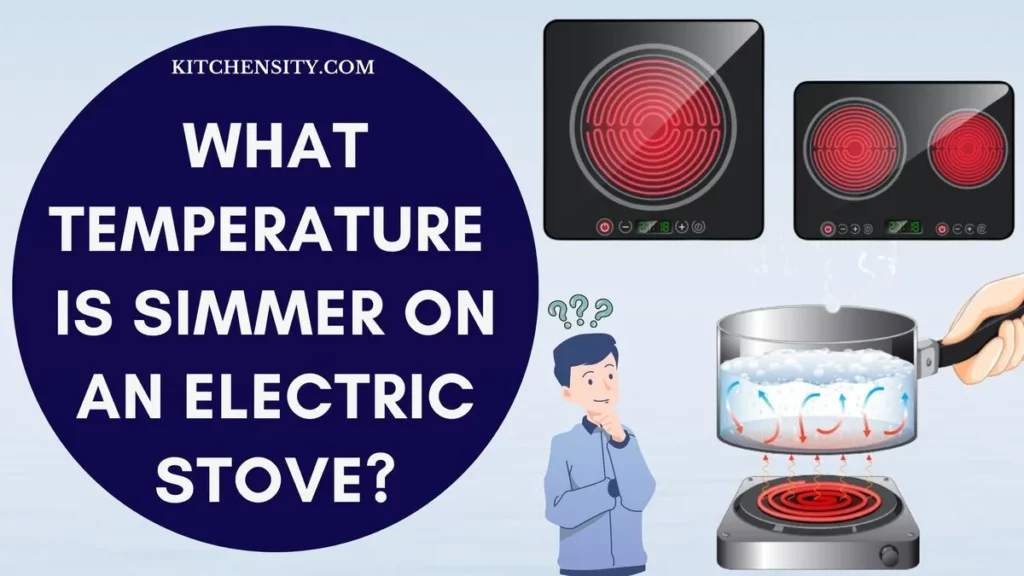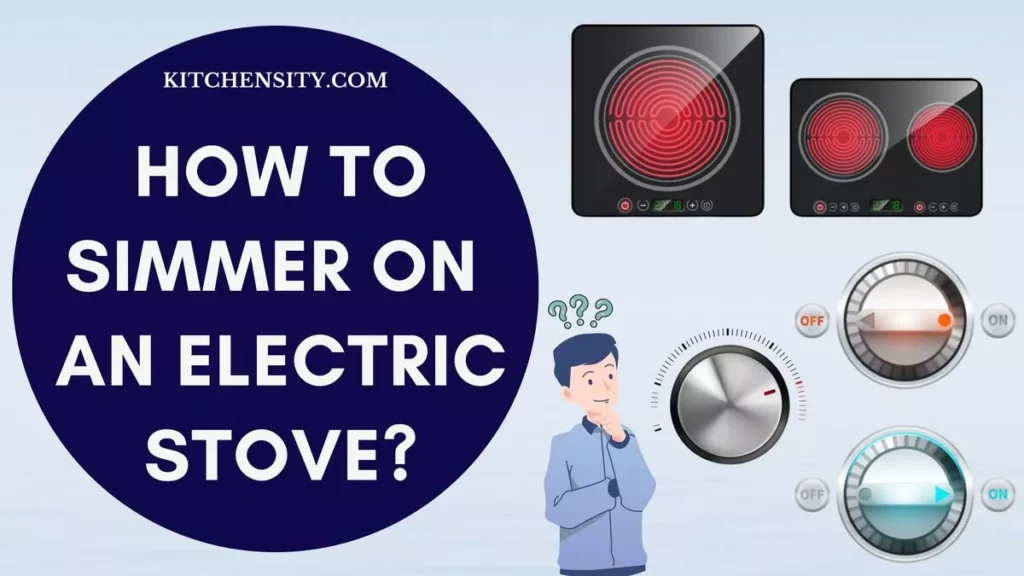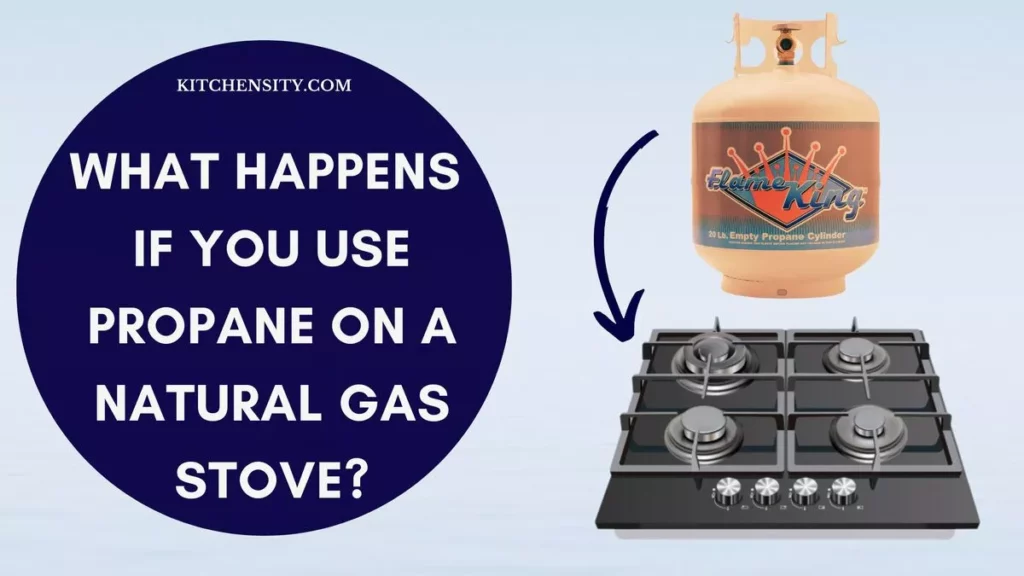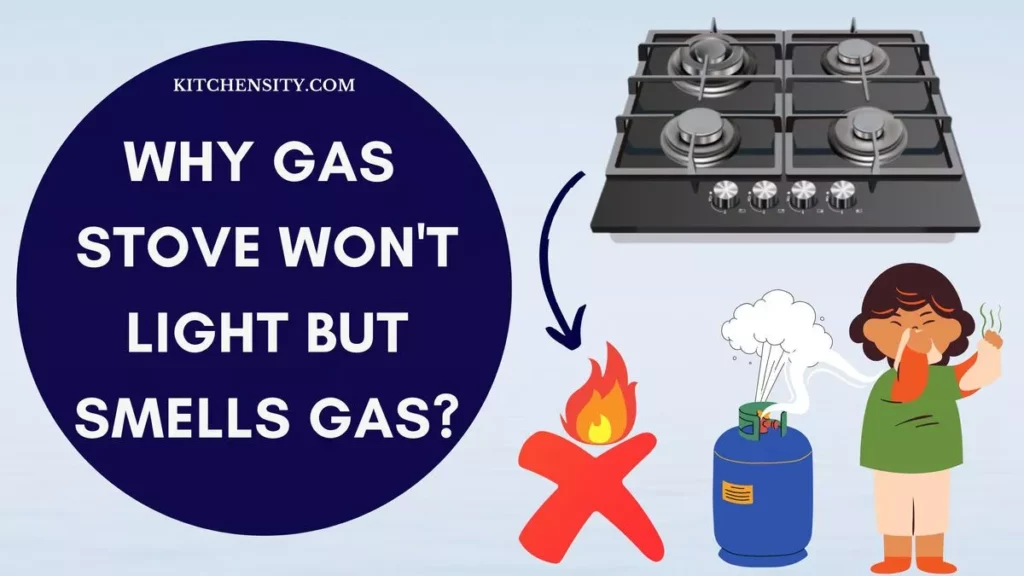Imagine getting home from a long day at work, ready to relax and cook a delicious dinner. You turn on your gas stove and light the burner, but something’s not right. There’s a faint smell of gas in the air, but you can’t quite tell where it’s coming from.
You try to ignore it, but the smell is getting stronger. You start to feel a little lightheaded and dizzy. You realize that your gas stove is leaking gas, and you need to get out of the house immediately.
Gas stove leaks are a serious safety hazard. They can lead to explosions, fires, and carbon monoxide poisoning. If you suspect that your gas stove is leaking, it’s important to take action immediately.
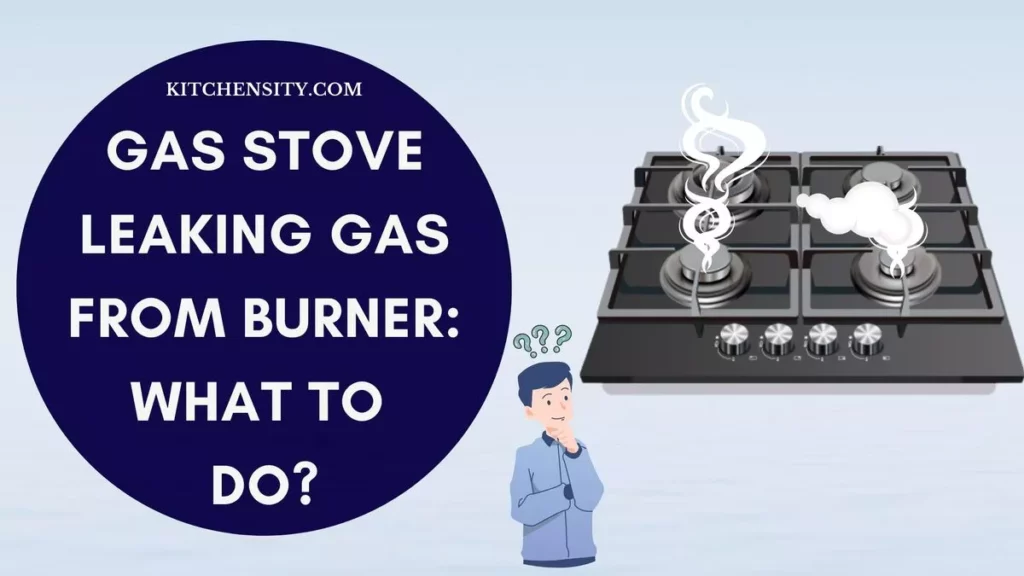
Table of Contents
- 1 Gas Stove Leaking Gas From Burner: Is It Dangerous?
- 2 Causes Of Leaking Gas From Stove’s Burner.
- 3 How To Identify Gas Leaks? Gas Leak From Stove Symptoms.
- 4 What Happens If Gas Leaks From Stove?
- 5 What To Do If A Burner Is Leaking Gas?
- 6 Can A Gas Leak From A Stove Cause Carbon Monoxide Poisoning?
- 7 How To Prevent Gas Leaks From Stoves Burner?
- 8 Final Thoughts On Gas Stove Leaking Gas From Burner.
- 9 FAQs (Frequently Asked Questions).
Gas Stove Leaking Gas From Burner: Is It Dangerous?
A gas stove leaking gas from a burner can be dangerous, posing a fire or explosion risk. Gas leaks can occur due to various reasons, such as a damaged burner, loose connections, or faulty seals. It’s important to address a gas leak promptly and take precautions to ensure safety.
- Open windows and doors to allow the gas to disperse outdoors.
- If it’s safe to do so, turn off the gas supply to the stove.
- Do not light matches, candles, or any other flame near the stove.
- Avoid turning on or off any electrical devices, as sparks could ignite the gas.
- Contact your gas provider or a qualified technician to inspect and repair the stove.
- If the gas smell is strong or you suspect a significant leak, evacuate the area and call emergency services.
Also Read – Why Gas Stove Won’t Light But Smells Gas?
Causes Of Leaking Gas From Stove’s Burner.
Gas leaks from a stove burner can occur due to various reasons. Here are some common causes:
- Faulty Burner Valves: The burner valves are responsible for controlling the flow of gas to the burners. Over time, these valves can wear out or become damaged, preventing them from fully shutting off the gas supply. This can result in gas escaping from the burner even when it’s turned off.
- Loose Or Damaged Gas Lines: Gas stoves are connected to the gas supply through flexible hoses. If these hoses become loose, damaged, or are not properly connected, they can be a source of gas leaks. It’s crucial to ensure that the gas lines are securely attached and free from any visible damage.
- Cracked Burner Heads: The burner heads are where the gas and air mix before ignition. If these components develop cracks or other damage, it can lead to irregular combustion and gas leakage. Regular inspection of the burner heads is essential to detect any issues.
- Aging Seals And Gaskets: Gas stoves have seals and gaskets that help prevent gas from escaping. Over time, these seals can degrade, become brittle, or wear out, compromising their ability to contain the gas. Replacing aging seals and gaskets is a preventive measure to avoid leaks.
- Incorrect Installation: Improper installation of a gas stove can also lead to gas leaks. It’s essential to ensure that the stove is installed according to the manufacturer’s guidelines and by a qualified professional.
- External Factors: Sometimes, external factors such as physical damage to the stove or accidental impacts can cause gas leaks. Inspect your stove regularly for any signs of damage.
- Corrosion And Rust: If the gas pipes or connectors in the stove are made of metal, they can corrode over time. Corrosion weakens the pipes and can lead to gas leakage. Regular maintenance can help detect and address this issue.
- Pilot Light Problems: In older gas stoves with pilot lights, a malfunctioning pilot light can cause gas to flow continuously, leading to a leak. Ensure that the pilot light is functioning correctly.
Also Read – How To Fix A Yellow Flame On A Gas Stove?
How To Identify Gas Leaks? Gas Leak From Stove Symptoms.
Gas leaks can be dangerous, so knowing how to identify them is important. Here are some common signs of a gas leak:
- Smell: Natural gas is odorless, but gas companies add a mercaptan chemical to give it a distinctive, sulfur-like smell. If you detect this odor near your stove or gas appliances, it could indicate a gas leak.
- Hissing or Whistling Sound: A gas leak from a stove or line can sometimes produce a hissing or whistling sound. If you hear such a sound near your stove, it could indicate a gas leak.
- Visible Damage: Look for any visible damage to the stove, gas line, or burner, such as cracks, dents, or corrosion. Damage to these components can lead to gas leaks.
- Dead Plants: If you have indoor plants near your stove or gas appliances and they suddenly start to wither or die, it could be due to a gas leak affecting the air quality.
- Physical Symptoms: Exposure to natural gas can cause symptoms such as headaches, dizziness, nausea, fatigue, or difficulty breathing. If you experience these symptoms and suspect a gas leak, leave the area immediately and seek medical attention.
If you suspect a gas leak, it’s important to act quickly and take precautions to ensure your safety. Ventilate the area by opening windows and doors, turn off the gas supply if it’s safe, and leave the area. Contact your gas provider or emergency services for assistance.
Also Read – Orange Flame On The Gas Stove: Causes And Fixes
What Happens If Gas Leaks From Stove?
A gas leak from a stove can result in various dangers and risks. Firstly, due to the highly flammable nature of gas, even a small spark can ignite it, leading to a fire or explosion. Inhaling natural gas can also pose health risks, causing symptoms such as headaches, dizziness, nausea, fatigue, and breathing difficulties. In severe cases, a significant gas leak in a confined space can displace oxygen, leading to asphyxiation.
Also, a gas leak that ignites can result in substantial property damage to the stove, surrounding area, and other items nearby. It also contributes to environmental pollution and climate change. To prevent accidents and protect yourself and your property, addressing a gas leak promptly and taking appropriate safety measures is crucial.
If you suspect a gas leak, leave the area immediately, avoid flames or sparks, ventilate the area by opening windows and doors, and contact your gas provider or emergency services for assistance.
Also Read – Do Gas Stoves Need To Be Vented?
What To Do If A Burner Is Leaking Gas?

If a burner on your stove is leaking gas, it’s essential to take immediate action to ensure your safety and the safety of those around you. Gas leaks are a serious hazard, and you should follow these steps:
- Turn Off The Burner: The first and most crucial step is to turn off the burner where you suspect the gas leak. If it’s a gas stove with individual burner knobs, simply turn the knob for the affected burner to the “Off” position. This will stop the flow of gas to the leaking burner.
- Evacuate The Area: Evacuate everyone from the immediate vicinity of the stove. Ensure that everyone, including pets, leaves the kitchen or the area where the gas leak is occurring.
- Do Not Use Electrical Devices: Avoid using any electrical devices or appliances in the area, including light switches and phones. Electrical sparks can ignite gas, potentially leading to an explosion.
- Open Windows And Doors: If possible, open windows and doors to allow for ventilation. This helps to disperse the leaked gas and reduce its concentration in the air.
- Do Not Try To Fix It Yourself: It’s crucial not to attempt to repair the gas leak yourself. Gas systems are complex, and attempting to fix a gas leak without the proper knowledge and equipment can be extremely dangerous.
- Shut Off The Gas Supply: If you can safely access the gas shut-off valve, turn off the gas supply to the entire stove. The gas shut-off valve is typically located behind the stove or in a nearby cabinet. Turning off the gas supply will stop the flow of gas to all burners.
- Contact Professionals: After ensuring everyone’s safety and taking the initial precautions, contact a qualified professional for assistance. Reach out to your gas provider or an emergency service hotline to report the gas leak. They will dispatch trained technicians to address the issue safely.
- Wait For Professionals: While waiting for the professionals to arrive, do not re-enter the area with the gas leak. Allow the experts to assess and repair the problem to ensure it’s safe before resuming normal activities.
“Gas leaks from stoves can lead to fires and explosions. Regular maintenance and inspection of gas appliances are essential to prevent leaks and ensure safety in the kitchen.” – National Fire Protection Association (NFPA).
Also Read – How To Convert A Natural Gas Stove To Propane?
Can A Gas Leak From A Stove Cause Carbon Monoxide Poisoning?
Yes, a gas leak from a stove can potentially cause carbon monoxide (CO) poisoning. When natural gas burns incompletely, it can produce carbon monoxide, a colorless, odorless gas that is toxic to humans and animals when inhaled in high concentrations.
If there is a gas leak from a stove, especially in an enclosed or poorly ventilated area, the gas can accumulate and increase the risk of carbon monoxide poisoning. Symptoms of carbon monoxide poisoning include headache, dizziness, weakness, nausea, vomiting, chest pain, and confusion. Prolonged exposure to high levels of carbon monoxide can be fatal.
To prevent carbon monoxide poisoning from a gas stove:
- Ensure proper installation of gas stoves by qualified professionals.
- Schedule regular maintenance and inspections for your gas appliances to detect and address any potential leaks or issues.
- Install carbon monoxide detectors in your home, especially near gas appliances and sleeping areas. These detectors can alert you to the presence of carbon monoxide and provide early warnings.
- If you suspect a gas leak or experience symptoms of carbon monoxide poisoning (especially if multiple people in your home exhibit symptoms), evacuate the area immediately and seek medical attention.
Also Read – What Happens If You Use Propane On A Natural Gas Stove?
How To Prevent Gas Leaks From Stoves Burner?
Gas leaks can lead to fires, health risks, and property damage. Here are some important steps that you can take to prevent gas leaks from stove burners.
- Inspect your stove regularly for signs of wear and tear, such as cracks or corrosion, and replace any damaged parts promptly.
- Ensure that your stove is installed correctly and by a qualified professional.
- Regularly check the connections between the gas line, burner, and gas valve for tightness and leaks. Replace any faulty or worn-out connectors.
- Clean your stove regularly to prevent debris or food residue from clogging the burner holes, which can disrupt the gas flow.
- Avoid using pots or pans that are too large or small for the burner, as this can cause uneven heating and potentially lead to gas leaks.
- Ensure that your kitchen is well-ventilated when using the stove to prevent gas buildup. Open windows or use a vent hood to remove excess gas.
- Consider installing a gas detector in your kitchen to alert you to any gas leaks. Place the detector near the floor, as natural gas is heavier than air.
Also Read – Master Medium Heat On A Stove
Final Thoughts On Gas Stove Leaking Gas From Burner.
So, the issue of a gas stove leaking gas from a burner is a matter that warrants serious attention and concern. While gas stoves offer efficiency and convenience in the kitchen, they also come with potential risks that cannot be ignored.
Understanding the mechanics of gas stoves, common causes of gas leaks, and the associated dangers is vital for the safety of both your household and the environment.
- Faulty burner valves, loose or damaged gas lines, cracked burner heads, aging seals, and incorrect installation are among the primary culprits behind gas leaks.
- Identifying gas leaks through signs like the distinctive odor of natural gas, hissing sounds, irregular flames, and visual inspections is crucial in taking timely action.
Prevention is key. Professional installation, regular maintenance, and vigilant checks are crucial. Gas leak detectors and safety measures like proper ventilation and avoiding flammable materials near the stove can help.
If a gas leak is suspected, immediate action is necessary. Evacuate, shut off the gas, and contact professionals. Safety should always come first when dealing with gas appliances.
Also Read – Should A Slow Cooker Simmer On Low?
FAQs (Frequently Asked Questions).
-
Is It Normal For A Gas Stove To Have A Slight Odor When In Use?
No, a strong odor of natural gas is not normal and indicates a potential gas leak. If you smell gas, it’s essential to take immediate action.
-
Can I Repair A Gas Leak In My Stove Myself?
Gas leaks should be handled by qualified professionals. Attempting to repair a gas leak without proper training can be extremely dangerous.
-
How Often Should I Schedule Maintenance For My Gas Stove?
It’s recommended to schedule annual maintenance checks for your gas stove to ensure its safe and efficient operation.
-
Are There Any Eco-Friendly Alternatives To Gas Stoves?
Yes, electric stoves and induction cooktops are eco-friendly alternatives that eliminate the risk of gas leaks.
-
What Should I Do If I Suspect A Gas Leak But I’m Not Sure?
If you have any doubts about a potential gas leak, it’s better to err on the side of caution. Evacuate your home and contact your gas provider or emergency services for assistance.
🔧 Stove Expert | 🔥 Gas Guru | 🏠 DIY Enthusiast | 🎨 Painter Extraordinaire
John Davis is your go-to source for all things stoves, from expert repairs to maintenance tips. With a deep understanding of gas systems, including natural and propane, John ensures your kitchen stays cooking safely. His passion for DIY home and kitchen projects shines through his stunning paint transformations. Trust John to bring warmth and functionality to your home, one stove at a time.

